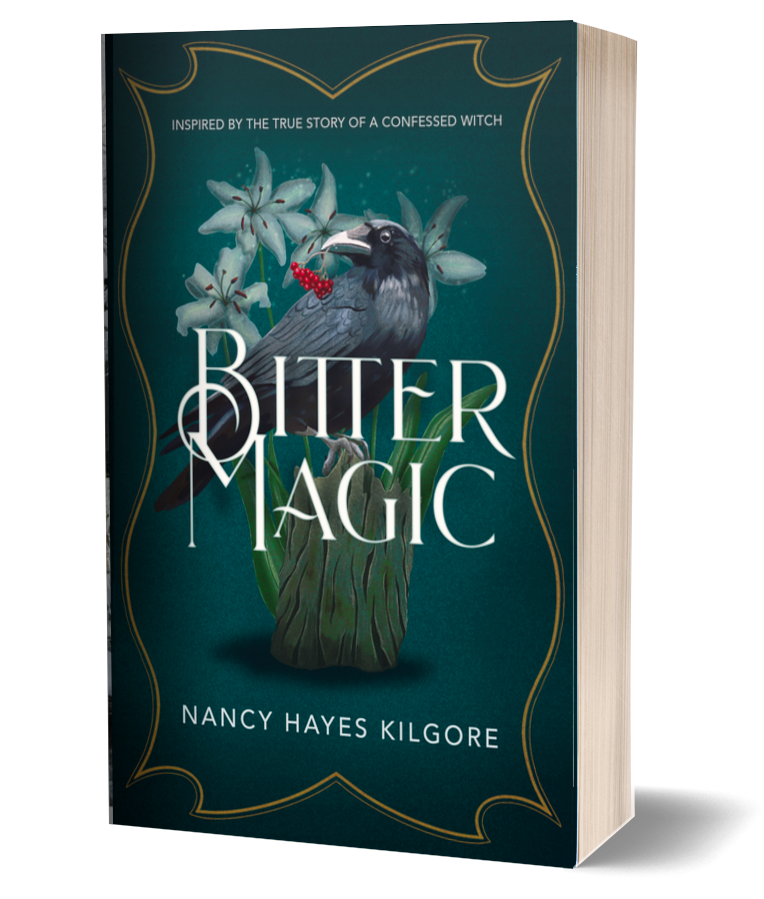
For Book Groups
- Most of us have an idea of what happened during the “witch craze” of the 1600s through 1800s, a time of fear and mass violence towards innocent women healers. Did Isobel’s story change your views on this? And how?
- Which character(s) did you empathize with and why?
- Describe Margaret’s relationships with Isobel and with Katharine.
- Isobel and Katharine personify two different forms of spirituality during the 1600s. How are they different? Do you see any similarities between them?
- Some readers see a feminist theme in the novel. Did you see that? And how so?
- What did you think of Isobel’s out of body experiences? Were they real or delusions, as Katharine said?
- Almost everyone in 1600s Scotland believed in the reality of the “Otherworld.” What is your opinion of this place?
- What do you see as the main themes in this novel?
Bitter Magic
Magic and mysticism in the Scottish Highlands
A chance encounter leads teenaged Margaret into the circle of Isobel Gowdie, a “cunning woman” who practices magic and travels in the fairy world. But Scotland is aflame with wars over religion–English against Scots, Catholics against Protestants–and in the Scottish Highlands the witch craze is at its height. When Margaret starts to meet with Isobel to learn magic, Isobel is accused of witchcraft, and then Margaret becomes a suspect, too. Will Andrew, an English soldier and Margaret’s suitor, reject her now? And can her tutor, Katharine, a Christian mystic, affect the outcome for Isobel as well as Margaret? Bitter Magic is inspired by the true story of the witchcraft trial of Isobel Gowdie in 1662.
Watch a 5- minute video on how Nancy discovered Isobel Gowdie
Reviews
“…If you’re looking for a captivating tale that juxtaposes two irreconcilable ideologies, and is filled with magic and intrigue, look no further!”
– Sabina Magliocco, Professor of Anthropology, University of British Columbia
“The injustice of the time, both toward women and between classes, is vividly portrayed. The book is densely written, but will reward dedicated readers with an immersive ringside seat to the witch trials of seventeenth-century Scotland.”
—Booklist
“…a book of considerable historical insight…The dialogue is compelling, and the sense of place and time hangs heavy.”
– Kirkus Reviews
“…compelling…a fascinating blurring of the lines between superstition, reality, and belief.”
– Historical Novels Review
“Bitter Magic may masquerade as a windswept historical gothic in the mode of Daphne DuMaurier or Anya Seton, but is something rarer. Nancy Kilgore’s vision is utterly contemporary, concerned not with simple outcomes of guilt or innocence in the public sphere but the complicated shades of gray within her characters.”
-Stewart O’Nan, author of A Prayer for the Dying
“. . . the prose is confident and the setting richly detailed. . . . Kilgore captures the dismal subsistence of the peasants, the pall of religious fervor, the new search for rationality, and the sorry plight of women. . . . A significant, accurate portrayal of a dour 1660s Scotland. . . .”
—Kirkus Reviews
“This page-turning story will keep you up at night, wondering what’s going to happen in a much more complex story than we usually hear about “the burning times.” The heroine is a curious, likeable young woman, the “witch” an expert naturalist and healer who goes astray, and you’ll never see a more thrilling version of the devil.”
—Mary Dingee Fillmore, bestselling author of An Address in Amsterdam
“Compelling . . . A fascinating story made more so by the tie to the historical record and actual documents . . . a more complete, holistic portrait of a strange aspect of human history than other witch narratives.”
—Ruth Linnaea Whitney, author of SLIM, a novel of Africa
“Kilgore‘s lyrical prose and talent for world building create a wondrous landscape in which the many-layered story unfolds.”
—Tracey Enerson Wood, bestselling author of The Engineer‘s Wife


